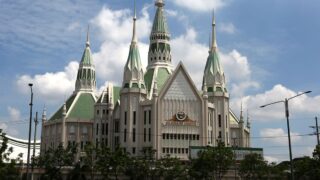The World Bank is set to approve next month a $400-million loan to the Philippines that will be spent to enhance the country’s resilience to natural calamities.
According to the latest World Bank documents, the development policy financing—formally titled Promoting Competitiveness and Enhancing Resilience to Natural Disasters Programmatic Development Policy Loan (DPL) Subprogram 1—is expected to be tackled by the Washington-based multilateral lender’s board on Dec. 17.
The DPL to be implemented by the Department of Finance (DOF) will support the Philippine government in “promoting competitiveness; enhancing fiscal sustainability, and strengthening financial resilience to natural disasters and climate change,” according to the World Bank.
The World Bank said the Philippine economy has been sustaining rapid and “pro-poor” economic growth since 2010, which also contributed to declining poverty incidence.
However, it said more needed to be done to improve the inclusiveness of growth and enhance resilience to natural disasters.
“Due to its geographical location, the Philippine archipelago is at high risk to a range of natural disasters, which will worsen with climate change. The Philippines has been identified as the third most vulnerable country in the world to weather-related extreme events and sea level rise. Main hazards in the Philippines include typhoons, floods, earthquakes and volcano eruptions,” the World Bank noted.
Specifically, the upcoming World Bank loan will enhance regulation for private insurance market against natural disasters; increase the efficiency of post-disaster financing by expanding the government’s risk-layering strategy, and reduce contingent liabilities by creating and managing a public asset registry.



